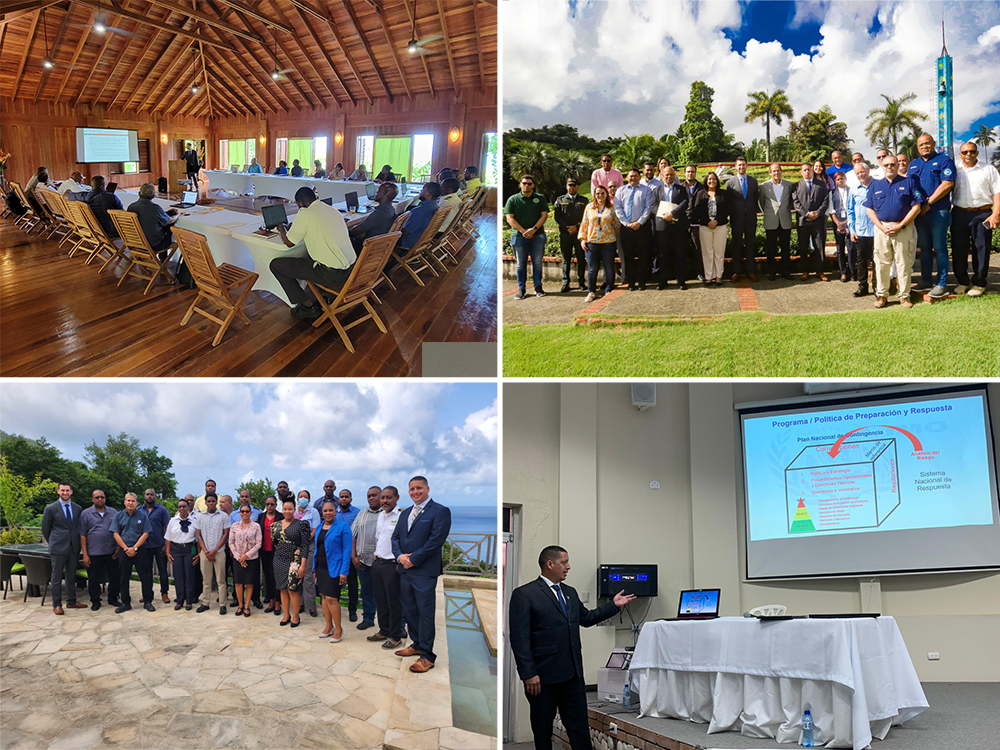The latest activities in IMO's ongoing work to support Caribbean small island developing States (SIDS) on oil spill contingency planning have taken place in Dominica (16-18 August) and the Dominican Republic (22-24 August).
The in-person workshops provided support on each State's National Oil Spill Contingency Plan (NOSCP) – which is the foundation for an effective and sustainable oil spill preparedness and response framework – and effective implementation of the International Convention on Oil Pollution Preparedness, Response and Co-operation (OPRC) Convention.
The activities were aimed at relevant stakeholders and government personnel involved in responding to oil pollution incidents. These officials were provided withthe knowledge needed to make the NOSCP appropriate for responding to oil spill incidents and to make necessary updates by identifying gaps and shortcomings within their national plans.
Both workshops incorporated table-top and discussion-based exercises to build capacity and test response systems to identify areas that require further development. The use of ARPEL's RETOS tool, which was developed with support from IMO, will result in a gap analysis of the level of preparedness for Dominica and the Dominican Republic. For Dominica, the workshop will result in the development of a Risk Register and Risk Matrix for oil spill scenarios. For the Dominican Republic, the workshop will support further development of its NOSCP.
The workshops were run through IMO's Technical Cooperation Programme; the Regional Marine Pollution Emergency, Information and Training Centre - Caribe (RAC/REMPEITC-Caribe); with expertise provided by the United States Coast Guard (USCG).
